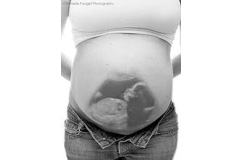Our support staff can guide families through a very difficult pregnancy. Families need support from the time there is a poor diagnosis, through the delivery, and after the baby has passed. We provide that support and can refer you to Perinatal Hospices.
We are so sorry that your baby is not healthy. We are so sorry for all you are going through. We pray daily for those experiencing poor prenatal diagnosis, pregnancy loss, and infant loss. We believe all parents have the right to have delivery options, and to grieve for their child. Parents should be fully informed, and not be rushed into any decisions. Of course, you need to listen to your doctor’s advice. Usually there is time to mindfully consider many of the decisions you will need to make.

If you are healthy and you are being rushed into a decision to end your pregnancy, ask your doctor if it is medically necessary to truly rush to make a decision. There is usualy time to determine what route to take well into the third trimester. Take your time and research the facts of your situation. Whether your child goes to Heaven sooner or later, a fully informed decision could prevent you from second-guessing yourself for the rest of your life.
This section is taken from the website.: https://www.perinatalhospice.org/faqs
Perinatal hospice and palliative care is an innovative and compassionate model of support for parents who find out during pregnancy that their baby has a life-limiting condition and who choose to continue their pregnancies. As prenatal testing continues to advance, more families are finding themselves in this heartbreaking situation. Perinatal (perinatal means around the time of birth) hospice incorporates the philosophy and expertise of hospice and palliative care into the care of this new population of patients. This specialized support is provided from the time of diagnosis through the baby's birth and death. Perinatal palliative care helps parents embrace whatever life their baby might be able to have, before and after birth.
This support begins at the time of diagnosis, not just after the baby is born. It can be thought of as "hospice in the womb" (including birth planning, emotional support for the family, and preliminary medical decision-making before the baby is born) as well as more traditional hospice and palliative care at home after birth (if the baby lives longer than a few minutes or hours). It includes essential newborn care such as warmth, comfort, and nutrition. Palliative care can also include medical treatments intended to improve the baby's life. This approach supports families through the rest of the pregnancy, through decision-making before and after birth, and through their grief. Perinatal hospice also enables families to make meaningful plans for the baby's life, birth, and death, honoring the baby as well as the baby's family.
Perinatal hospice is not a place. It is a model of care, an extra layer of support that can easily be incorporated into standard pregnancy and birth care. Ideally, it is a comprehensive and multidisciplinary team approach that can include obstetricians, perinatologists, labor & delivery nurses, neonatologists, NICU staff, clergy, and social workers, as well as genetic counselors, midwives, traditional hospice professionals, and others. The concept was first proposed in the medical literature in 1997 and has now grown to nearly 300 programs worldwide. Many articles have been published in major journals such as the American Journal of Obstetrics and Gynecology and the Journal of Reproductive Medicine. A recent study of perinatal medical professionals in France found that the vast majority, well over 90 percent, support offering perinatal palliative care as a regular option. And new 2016 prenatal testing practice guidelines from the American College of Obstetricians and Gynecologists and the Society for Maternal-Fetal Medicine recommend that post-diagnosis counseling for parents should include the option of perinatal palliative care. Perinatal hospice is a beautiful and practical response to one of the most heartbreaking challenges of prenatal testing.
See the list of perinatal hospice programs, or ask your caregivers. (If your caregivers don't yet know about perinatal hospice, show them this website and help inform them!)
No! Hospice and palliative care are about providing a different kind of medical care, with different kinds of hope. This approach is about providing comfort and dignity both for the person who is terminally ill, and for the family and extended circle. Hospice can be a frightening word, but it doesn't mean giving up on your baby. A core principle of hospice and palliative care is to not hasten death. (World Health Organization) Palliative care can be provided along with medical intervention to improve the baby's life, sometimes even including surgery, if the intervention would be of benefit and not unnecessarily burdensome to the baby. Babies with the same condition can vary greatly in their ability to sustain life. A few babies surprise everyone with their strength and are able to "graduate" from end-of-life care and live longer than expected. Hospice and palliative care follow the baby's lead, honoring the baby's life.
For a baby who is expected to die, parents' original wishes and dreams for their child’s long life are shattered. But their hopes can change direction: for the baby to be treated with dignity, for the baby to be protected until death comes naturally, for the baby's life to be filled with love. Parents who have chosen perinatal hospice have said that this kind of care helped their hopes be fulfilled.
Recommendations
We recommend the book "A Gift of Time" by Amy Kuebelbeck to be truly educated before making a decision. We have it on our book page but you can also order it from other on-line book sites. Please educate yourself as much as possible before making any decisions.
We would like to make additional recommendations that we hope will help you as you plan the birth of your baby. You can find these recommendations below:
- Take pictures of your baby. Bring a separate SD card so they don't show up unexpectantly in the future. Many people later regret not taking pictures. There are professional photographers who do this for free.
You may want to investigate this online resource: http://www.nowilaymedowntosleep.org/ - Spend time with your baby. You will never get this time back.
- Have keepsakes you can put in a baby book or memory box (little blankets, caps, hospital bracelets, footprints and handprints, clay imprints of feet).
- Let family members, especially siblings, say their goodbyes when you are up to it.
- Don’t be afraid to say what you want for the baby at the hospital and funeral home.
- Name your baby and call him or her by name.
- Take your time making decisions and discuss options with your spouse before finalizing any decision.
- Know that testing for chromosomal abnormalities may be possible from the placenta and umbilical cord. The baby may not be required for such chromosomal testing.
- You can and should set boundaries. People may say the wrong thing. Forgive their ignorance, and tell them your boundaries.
- Know that grieving is hard work. It takes time, so don’t try and rush it.
- Journal your thoughts. By journaling, you can release some stress, create memories, and promote healing. Listening to music related to loss may help during this process.
- Let others help. Accept meals, help around the house, and babysitting. It is hard enough just to make it through each day. Letting others help you gives them something they can do.
- Find a support group in your area. You can check with SHARE or Faces of Loss/ Faces of Hope. Also you can check with Loss Doulas International .




